- Home›
- Healthy Living›
- 11 Herbs That Are Great For Weight Loss
11 Herbs That Are Great For Weight Loss
By: Priyanka Maheshwari Tue, 05 Sept 2023 5:07:12

Weight loss is a journey embarked upon by countless individuals seeking to improve their health, well-being, and overall quality of life. It is a multifaceted process that involves the deliberate reduction of body weight, primarily through the loss of excess fat tissue. While the motivations behind weight loss can vary greatly, including aesthetic goals, health concerns, or lifestyle improvements, the fundamental principle remains the same: achieving a healthy and sustainable balance between calorie intake and expenditure.
Effective weight loss not only contributes to physical vitality but can also have a profound impact on mental and emotional aspects of one's life. It often involves making conscious choices regarding diet, exercise, and lifestyle habits. Moreover, it demands patience, discipline, and a holistic approach that considers not just the numbers on the scale, but also factors such as nutrition, physical activity, mental well-being, and overall health.
"When food lacks flavor, adhering to a diet can become challenging. Fortunately, herbs and spices not only enhance taste but also help curb unhealthy food cravings. A variety of herbs geared towards weight loss are available, boasting anti-inflammatory, antioxidant, anti-diabetic, cholesterol-lowering, and hormone-regulating qualities to support your weight loss journey. To assist you in achieving natural weight loss, consider incorporating these 11 exceptional herbs. Continue reading to learn more!"

# Cinnamon
Cinnamon may help enhance insulin sensitivity, which can be beneficial for individuals with insulin resistance or type 2 diabetes. Improved insulin sensitivity may lead to better blood sugar control and reduced sugar cravings, indirectly supporting weight loss efforts. Some studies suggest that cinnamon can help regulate appetite and reduce feelings of hunger. This may result in reduced calorie intake, making it easier to maintain a calorie deficit necessary for weight loss. Cinnamon has been linked to a potential boost in metabolism. A faster metabolism can help burn more calories at rest, aiding in weight management when combined with a healthy diet and regular exercise. Stable blood sugar levels can prevent spikes and crashes in energy, which can lead to overeating or making poor food choices. Cinnamon may assist in maintaining more stable blood sugar levels. Chronic inflammation can hinder weight loss progress. Cinnamon possesses anti-inflammatory properties that may support a healthier body and metabolic function.
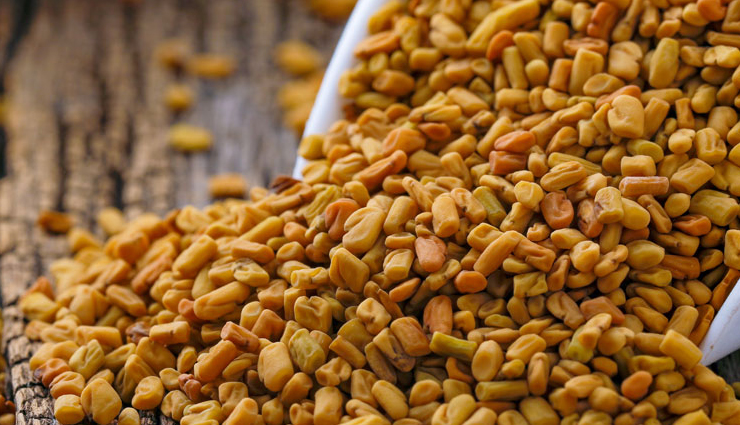
# Fenugreek
Fenugreek, a versatile herb and spice, has gained attention for its potential benefits in supporting weight loss efforts. Fenugreek seeds are rich in soluble fiber, which can create a feeling of fullness and reduce appetite. Consuming foods or supplements containing fenugreek may help control calorie intake by reducing the urge to overeat. Fenugreek may help stabilize blood sugar levels by slowing down the absorption of carbohydrates. This can help prevent spikes and crashes in blood sugar, reducing cravings for sugary and high-calorie foods. Some studies suggest that fenugreek may have a positive impact on metabolism, potentially aiding in the burning of calories and fat. Fenugreek has compounds like galactomannan, which may inhibit the accumulation of fat in the body. This can be particularly beneficial in preventing weight gain. Proper digestion is essential for effective weight management. Fenugreek can help soothe digestive issues and promote regular bowel movements, ensuring that nutrients are absorbed efficiently and waste is eliminated from the body.
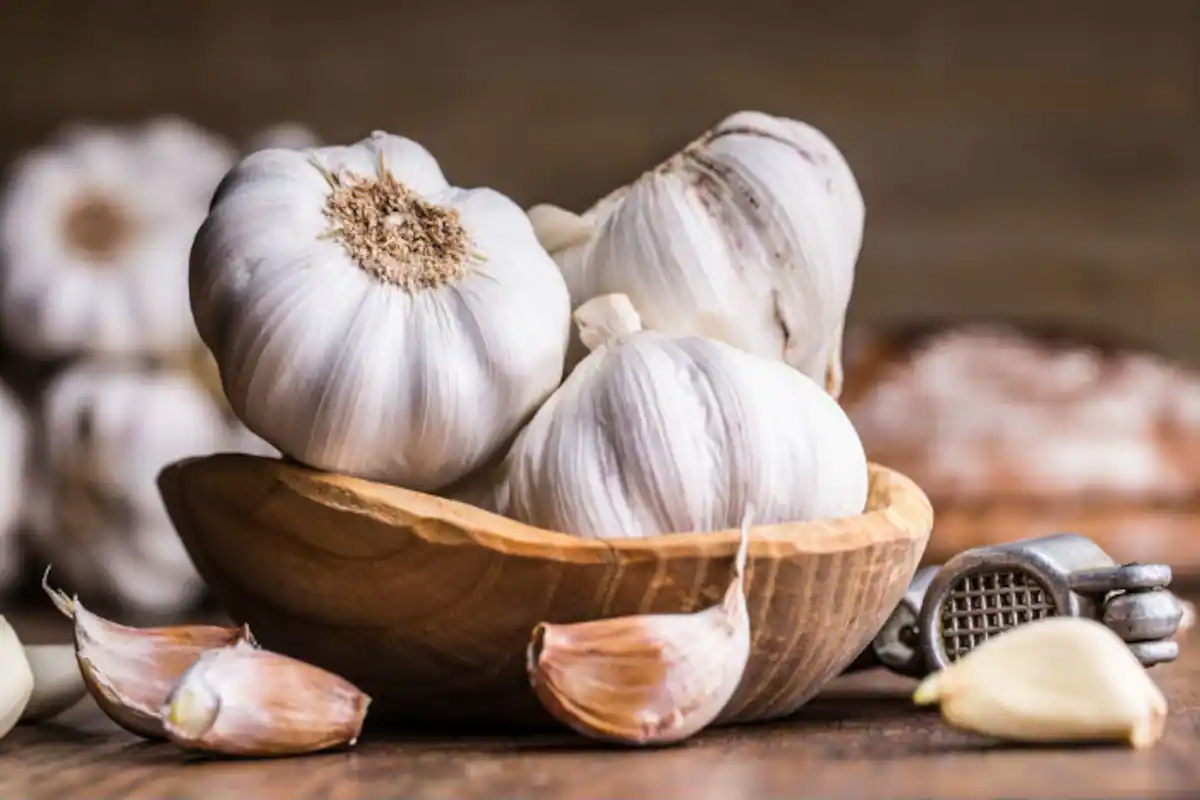
# Garlic
Garlic, a common ingredient in various culinary dishes, has several potential benefits that could indirectly support weight loss when incorporated into a balanced diet and healthy lifestyle. Garlic may help reduce appetite due to its pungent flavor and strong aroma. Some individuals find that the addition of garlic to meals can enhance the overall taste, making them feel more satisfied with smaller portions. Garlic contains compounds like allicin, which have been associated with increased metabolism. A faster metabolism can help the body burn more calories, which is beneficial for weight management when combined with a calorie-controlled diet and regular exercise. Garlic has been studied for its potential to improve insulin sensitivity and regulate blood sugar levels. Stable blood sugar levels can prevent energy crashes and reduce cravings for sugary and high-calorie foods. Chronic inflammation can hinder weight loss progress. Garlic contains antioxidants and anti-inflammatory compounds that may support a healthier body and metabolic function.

# Hibiscus
Hibiscus, a vibrant and colorful flower, is not only visually appealing but may also offer some potential benefits that could support weight management when included as part of a healthy diet and lifestyle. Hibiscus tea, made from the dried petals of the hibiscus flower, is known for its slightly tart flavor. Drinking hibiscus tea before or during meals may help reduce appetite, making it easier to consume smaller portions and control calorie intake. Staying adequately hydrated is important for overall health and can indirectly support weight loss. Hibiscus tea is a calorie-free beverage that can help you stay hydrated without adding extra calories from sugary or high-calorie drinks. Some research suggests that hibiscus may have a positive impact on blood sugar levels. Stable blood sugar levels can reduce cravings for sugary and high-calorie foods, promoting better control over calorie intake.

# Green Tea
Green tea has long been associated with a range of health benefits, including potential support for weight loss. Green tea contains compounds known as catechins, with the most well-known being epigallocatechin gallate (EGCG). These compounds have been studied for their potential to increase metabolism and help the body burn more calories, especially when combined with regular physical activity. EGCG in green tea has been shown to enhance the oxidation of fat, which means it can increase the body's ability to use stored fat for energy. This can potentially lead to greater fat loss over time. Some studies suggest that green tea may help regulate appetite by influencing hormones that control hunger, which can result in reduced calorie intake. Green tea may have a stabilizing effect on blood sugar levels. This can help prevent energy spikes and crashes, reducing cravings for sugary and high-calorie foods.Green tea has a thermogenic effect, which means it can temporarily increase calorie burning by generating heat in the body. This effect may contribute to overall calorie expenditure.
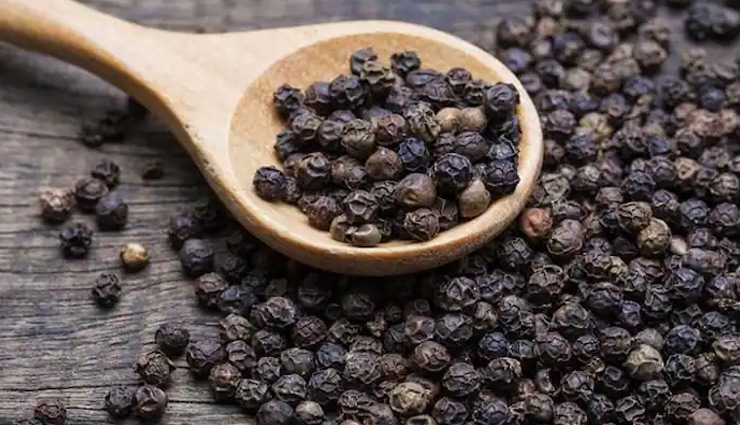
# Black Pepper
Black pepper is a commonly used spice that, while not a magic solution for weight loss, may offer some potential benefits when integrated into a healthy diet and lifestyle. Black pepper contains a compound called piperine, which may enhance digestion by increasing the production of digestive enzymes in the pancreas. Proper digestion can support efficient nutrient absorption and waste elimination, which is important for overall health and weight management. Piperine in black pepper has been studied for its potential to increase metabolism by stimulating thermogenesis, a process that generates heat in the body and can lead to greater calorie burning. Some animal studies have suggested that piperine may interfere with the formation of new fat cells and reduce fat accumulation, potentially contributing to weight loss.
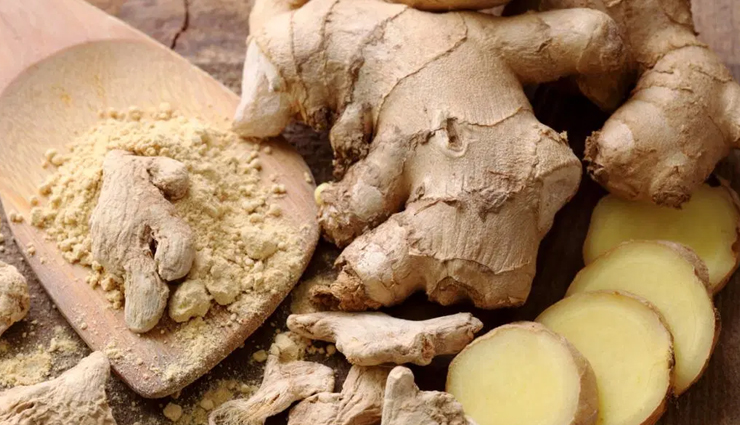
# Ginger
Ginger, a popular spice and herbal remedy, may offer several potential benefits that could support weight management when incorporated into a balanced diet and a healthy lifestyle. Ginger has been reported to help reduce appetite and feelings of hunger. Consuming ginger in various forms, such as ginger tea or adding it to meals, can create a sense of fullness, potentially leading to reduced calorie intake. Ginger has a thermogenic effect on the body, meaning it can raise body temperature and increase calorie expenditure. This effect may lead to a slight boost in metabolism, helping to burn more calories.Ginger is known for its digestive benefits. It can help alleviate digestive discomfort, reduce bloating, and support regular bowel movements. Proper digestion is crucial for nutrient absorption and overall well-being, which can indirectly affect weight management. Some studies suggest that ginger may help regulate blood sugar levels by improving insulin sensitivity. Stable blood sugar levels can prevent energy crashes and reduce cravings for sugary and high-calorie foods. Some research indicates that ginger may help lower LDL (bad) cholesterol levels. Maintaining healthy cholesterol levels is important for heart health and may indirectly support weight management.
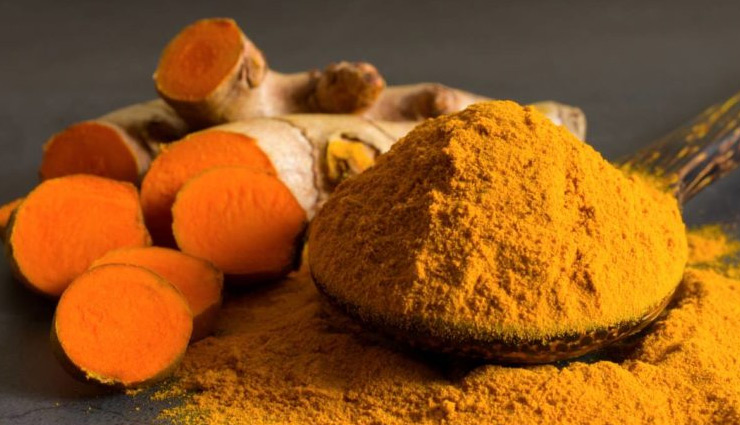
# Turmeric
Turmeric, a vibrant yellow spice commonly used in Indian cuisine, has gained popularity for its potential health benefits, including its role in weight management. While turmeric is not a magic solution for weight loss, it may offer several ways to support your weight loss journey when incorporated into a balanced diet and a healthy lifestyle. Turmeric contains a compound called curcumin, which is known for its strong anti-inflammatory effects. Chronic inflammation in the body can lead to weight gain and difficulty losing weight. Reducing inflammation may support overall metabolic health and improve weight management. Curcumin has been studied for its potential to enhance insulin sensitivity. Improved insulin function can help regulate blood sugar levels and reduce cravings for sugary and high-calorie foods, which can contribute to weight loss. Some research suggests that curcumin may inhibit the growth and development of fat cells. This could potentially lead to a reduction in body fat over time. Turmeric has been used traditionally to support digestion. Proper digestion is essential for efficient nutrient absorption and waste elimination, which can indirectly affect weight management.
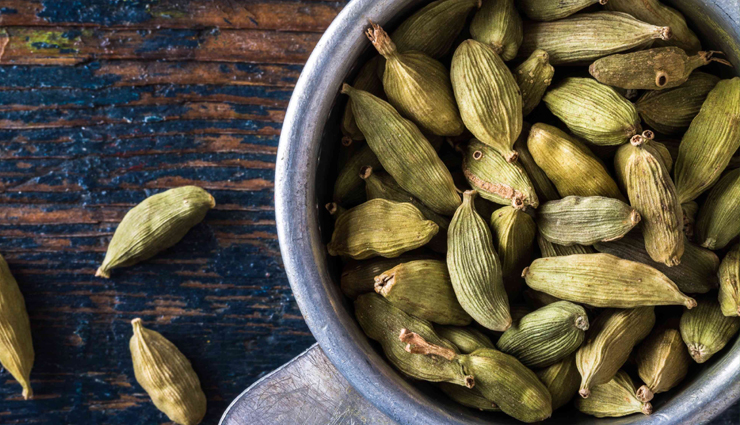
# Cardamom
Cardamom is a fragrant spice that has been used for centuries in various culinary traditions and as a natural remedy for various health issues. While cardamom is not a direct or major contributor to weight loss, it can still offer some potential benefits that may indirectly support weight management when incorporated into a balanced diet and healthy lifestyle. Cardamom contains compounds that may help increase metabolic rate, albeit to a modest degree. A faster metabolism can contribute to more efficient calorie burning and, over time, may support weight management. Cardamom is known for its digestive benefits. It can help alleviate digestive discomfort, reduce bloating, and promote healthy bowel movements. Proper digestion is important for nutrient absorption and overall well-being, which can indirectly affect weight management. The pleasant aroma and taste of cardamom can enhance the overall enjoyment of meals, potentially leading to a sense of satisfaction with smaller portions. This can help reduce calorie intake and support portion control. Chronic inflammation can be a factor in weight gain and difficulty losing weight. Cardamom contains antioxidants and anti-inflammatory compounds that may support metabolic health.

# Cayenne Pepper
Cayenne pepper is a fiery spice derived from hot chili peppers and is known for its potential role in supporting weight management when incorporated into a balanced diet and healthy lifestyle. Cayenne pepper contains a compound called capsaicin, which has been shown to increase metabolic rate. A faster metabolism can help the body burn more calories at rest, supporting weight management when combined with a calorie-controlled diet and regular exercise. Capsaicin may help regulate appetite and reduce cravings for high-calorie and sugary foods. Consuming cayenne pepper can create a feeling of fullness, making it easier to consume smaller portions and control calorie intake. Cayenne pepper has a thermogenic effect on the body, meaning it can raise body temperature and increase calorie expenditure. This effect can contribute to overall calorie burning. Cayenne pepper may have a stabilizing effect on blood sugar levels. Stable blood sugar levels can reduce cravings for sugary and high-calorie foods, promoting better control over calorie intake.
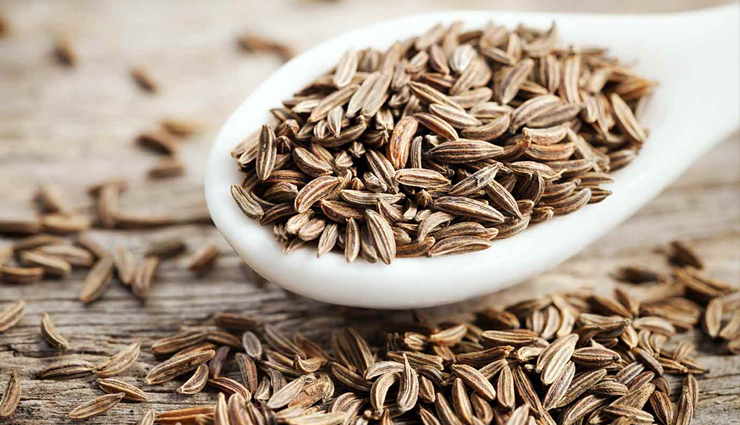
# Cumin
Cumin, a versatile spice commonly used in various cuisines worldwide, has gained attention for its potential role in supporting weight management. While cumin is not a miraculous solution for weight loss, it may offer several ways to help with weight management when integrated into a balanced diet and healthy lifestyle. Cumin contains compounds like cuminaldehyde and thymoquinone that may help increase metabolic rate. A faster metabolism can contribute to more efficient calorie burning and support weight management when combined with a calorie-controlled diet and regular exercise. Cumin's strong flavor and aroma can enhance the overall enjoyment of meals, potentially leading to reduced appetite and satisfaction with smaller portions. This can help in reducing overall calorie intake. Some studies suggest that cumin may help stabilize blood sugar levels by improving insulin sensitivity. Stable blood sugar levels can reduce cravings for sugary and high-calorie foods, promoting better control over calorie intake. Cumin has been traditionally used to aid digestion. Proper digestion is essential for nutrient absorption and overall well-being, which can indirectly impact weight management.





